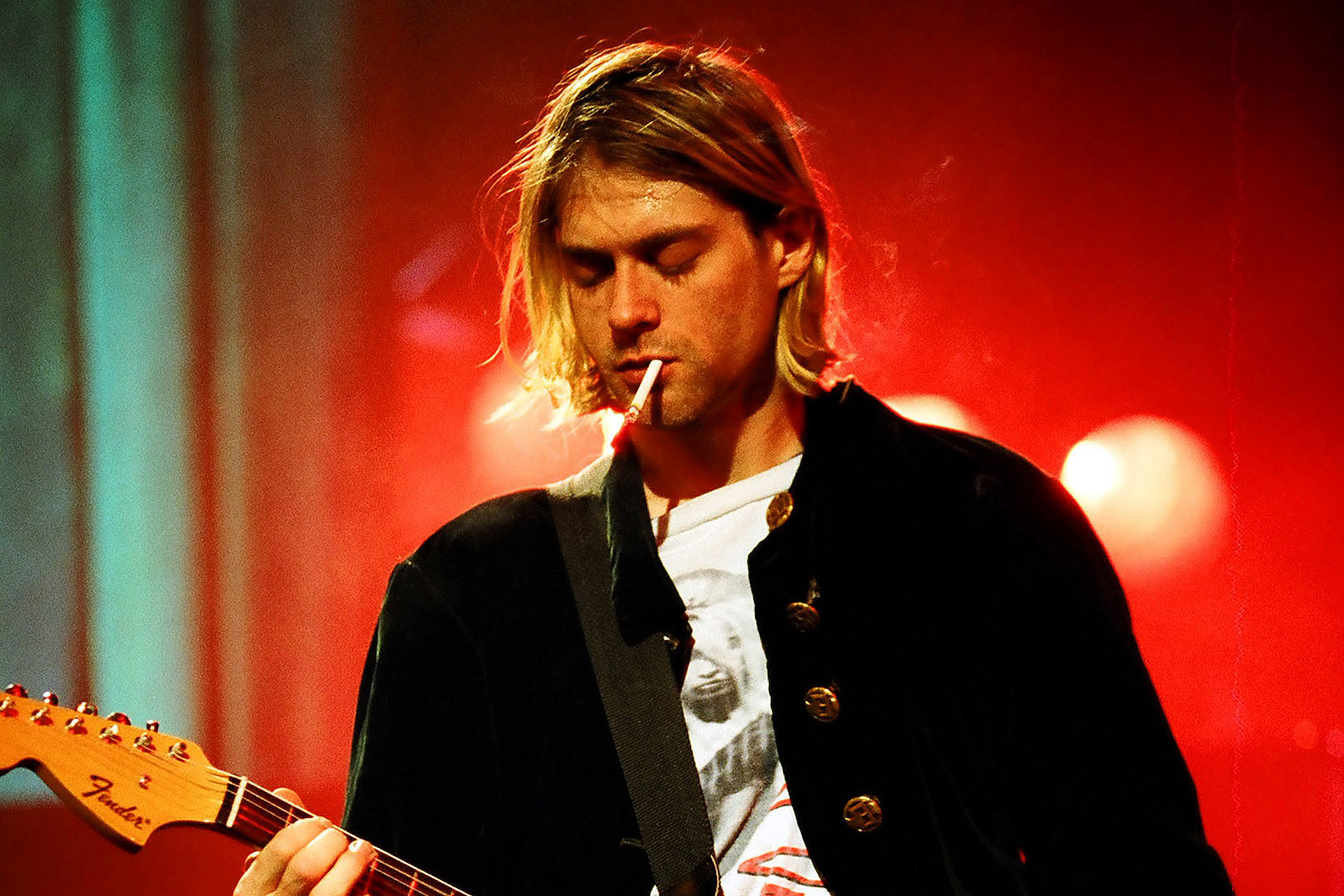
COME AS YOU ARE: BEHIND THE MAJOR LABEL 90’s RACE TO FIND THE NEXT NIRVANA
The early-mid nineties saw a massive label race to FIND the next musical revolution. In its wake was left AN AFTERMATH of Alt-Rock also-rans.
The pompous overblown hair metal scene of the 1980’s enjoyed a wild ride of excess for several years.
The scene was unapologetically chauvinistic, obsessed with sex, drugs and mayhem. Underneath the hairspray rock that dominated radio was a harmless batch of pop music made sellable to a male audience and custom designed for groupies. Sleazy and cheesy as it was bands like Poison, Warrant, and Skid Row were having a blast.
SMELLS LIKE SUCCESS
In hindsight it all makes sense but at the time no one was expecting what would happen. How could one stupid song instantly destroy an entire genre of music?
While Nirvana had been building up a small following fans with their debut LP Bleach, it wasn’t until the radio got a hold of “Smells Like Teen Spirit” that the world changed forever. The band’s fusion of melody and noise knocked The King Of Pop Michael Jackson himself off of the # 1 throne. Social alienation and sloppily played power chords replaced the flashy guitar solos Van Halen had cock-rocked into the spotlight.
While Nirvana were only around for a short term, it was their debut single that contained all molecules for an atom bomb. Gone was the gauzy euphoria of the padded 80’s and in came the abrasive scares and wounds. It was time to stop being perfect and start slacking off.

Kurt Cobain’s tragic suicide was proof of just how much potency he was channeling within. If you’re going to change the world it’s not going to be easy on the physical body and mind. His drug addictions and heroine obsession made it clear that it wasn’t just fame he was dealing with but the power to affect so many lives with his songs. It took an instantly measurable tole on his spirit.
Multi-platinum success poured in fast and the band found itself overwhelmed by the rabid response. As it turns out, angst sells records. The music industry has as history of exploiting trauma and anxiety.
For every Blues musician in the 1940’s lamenting about their painful experiences, there was a man in a suit nearby ready to make sure it could be packaged, sold, and floated through transistor radios around the country. Whether motivated by money or the music end result was the same – the public got to hear tortured music and relate to it in their bedrooms. There is nothing wrong with capitalizing on the beauty of an artists malfunction if it pays the rent for both parties.
One man’s struggle is another man’s fourth quarter sales report.
It didn’t take long for the world to be transfixed by the brand new sound of what would later become an entire culture revolving around plaid sweaters. As self-loathing became cooler by the minute, immediately outdated acts like Slaughter, Ratt, and White Lion were locked out of the pity party. This kicked open the doors for a new kind of mainstream music – one infamously dubbed “Alternative/Grunge.”
Bands could now flirt with punk, low-fi, industrial, shoe gaze, noise, and psychedelics and still land a record deal. In the wake of all the commotion the industry exec’s held meetings to strategize how to follow the trend.
TRYING TO STRIKE GOLD
As soon as the major labels caught on to what had happened it was go-time. Every label wanted their own grunge cash cow and A&R departments set their sights to underground music clubs and dive bars for any fresh prospects. Bands that sounded even remotely similar to Nirvana were being snatched up and injected with major label bucks.
Thus began the manhunt era (1992-1996) where the machine set its hungry sights on catching the next big fish. The only problem was that they labels for got all real magic happens organically. As they would soon find out, the nuclear fission of Nirvana can’t be be re-created in a lab.
Several bands were signed in the wake of Nirvana’s success that lost their respective record companies millions.

BORDOMS 
CLAW HAMMER 
FLAMING LIPS 
AFGHAN WHIGS 
BEST KISSERS IN THE WORLD 
THE MELVINS 
BOSS HOG 
BUTT TRUMPET 
ETHL MEATPLOW 
DRIVE LIKE JEHU 
TRULY 
FLOP 
FOETUS 
FRETBLANKET 
THAT DOG 
GORKY’S ZYGOTIK MYNCI 
MERCURY REV 
HAMMERBOX 
HIS NAME IS ALIVE 
POND 
JAWBOX 
SAMMY 
MEAT PUPPETS 
PELL MELL 
JESUS LIZARD 
SATCHEL 
SKY CRIES MARY 
SEAWEED 
SHUDDER TO THINK 
STEEL POLE BATH TUB 
THE THOMAS JEFFERSON SLAVE APARTMENTS 
UNSANE
Major labels were throwing money at some of the oddest bands around in hopes of getting rich.
Labels hand’t predicted the revolution, so the best they could do is throw a giant fish over anything that had potential. Bands were snatched up from the indie world for a major label chance at success only to be dropped soon after. Any band championed or loosely associated with Nirvana were pampered with limousines and expensive dinners.
Cobain’s love of The Meat Puppets earn them a huge marketing campaign and radio play. Acts like Jawbox, Bug Lamp, Cop Shoot Cop, and Daniel Johnston (a Cobain favourite) saw advances in the hundreds of thousands of dollars while their sales failed to make any significant return whatsoever. Virgin records reportedly spent more than $1 million marketing the virtually unheard of duo Royal Trux.
In 1992 when Nevermind was released, it pushed total industry record sales to a value of over $9 billion.
Sonic Youth’s Thurston Moore championed the band Cell who signed to DGC Records for an astonishing $1.5 million dollars. The band was so short lived they barely made a blip on the radar and disbanded after only one album.

closer to the target
There was no way to confidently bank on what audiences wanted and certainly no way to foresee which scruffy bar band could fill arenas in the future. That is part of the gamble of being an A&R talent scout for any label.
However, there were some lucky acts that went on to become success stories at the time, making their record companies very happy in the process.
With heavy radio-play and soaring ticket sales acts like Beck, Soundgarden, Weezer, and Stone Temple Pilots were the breadwinners, reimbursing the expense accounts drained from their less fortunate label-mates.

COUNTING CROWS 
LIVE 
PEARL JAM 
STONE TEMPLE PILOTS 
TOOL 
WEEZER
AFTER THE GOLDRUSH
What happens to a band’s morale after being dropped? What are the psychological effects? A quick run through the system only to be tossed aside with failed dreams of stardom. Many of the discarded acts fell into drug habits and financial complications.
As the disappointing sales reports were faxed in the great expedition came to an end. Record exec’s eventually set their sights on a new style of music which was less noisy and abrasive. Hootie And The Blowfish would be the next “rock” band to sell in substantial numbers. Their debut album Cracked Rearview sold over 15 million copies.
From 1996 onward the masses were chewing softer flavours which paved the way for the boy bands and Britney’s that would reign the charts. Rock music eventually veered towards Nu-Metal and re-furbished takes on the early Alice In Chains/Pearl Jam vocal stylings.
While bands like Butthole Surfers and Babes In Toyland had the luxury of playing festivals and touring with major headliners, the impact of Alt/Grunge music wouldn’t survive past the 1990’s.
The next wave of rock would come in the form of “indie” music which all be subtly influenced by Nirvana’s fiery desire to not play by the corporate rules. To this day Nirvana’s impact on music is still evident in the 2020’s while acts like Machine Gun Kelly and Post Malone pay homage to Kurt’s demons.


